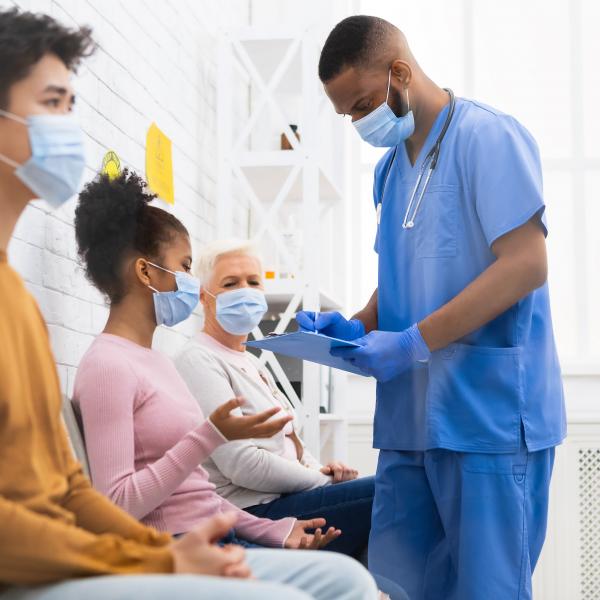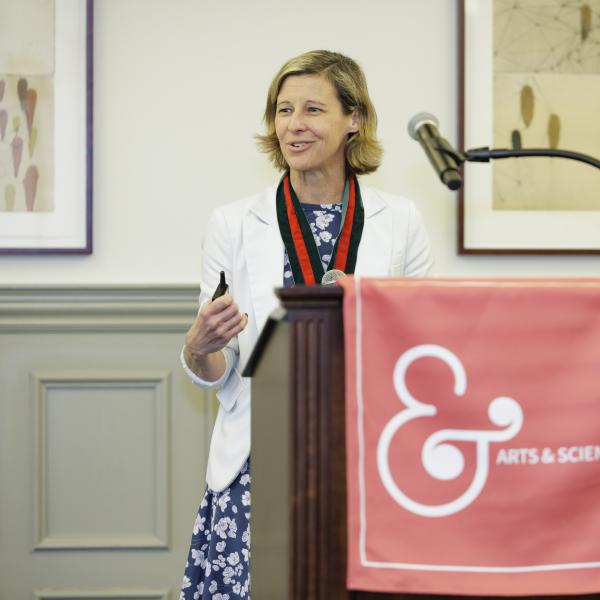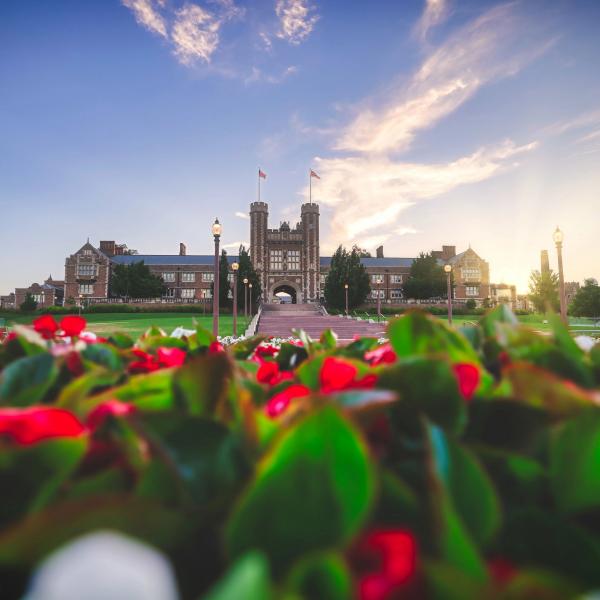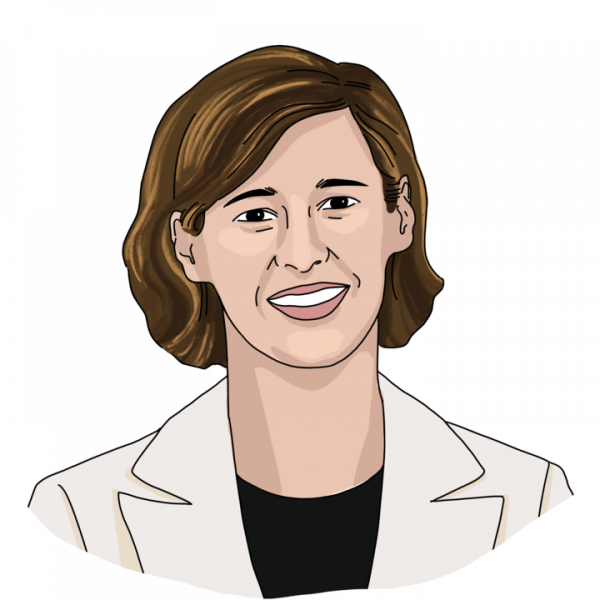This July, William F. Tate IV will become executive vice president for academic affairs and provost at the University of South Carolina.
As a member of the Arts & Sciences faculty since 2002 and dean of the Graduate School and vice provost for graduate education since 2014, Tate has left a lasting mark on Arts & Sciences. Here, he discusses his work promoting graduate education, memories from his time here, and why Washington University will always be home.
While dean of the Graduate School you championed interdisciplinary graduate work by establishing a multi-school data science doctoral pathway, joint graduate programs, and interdisciplinary doctoral certificates. Why do you think it’s so important for graduate students to have the opportunity to work across disciplines?
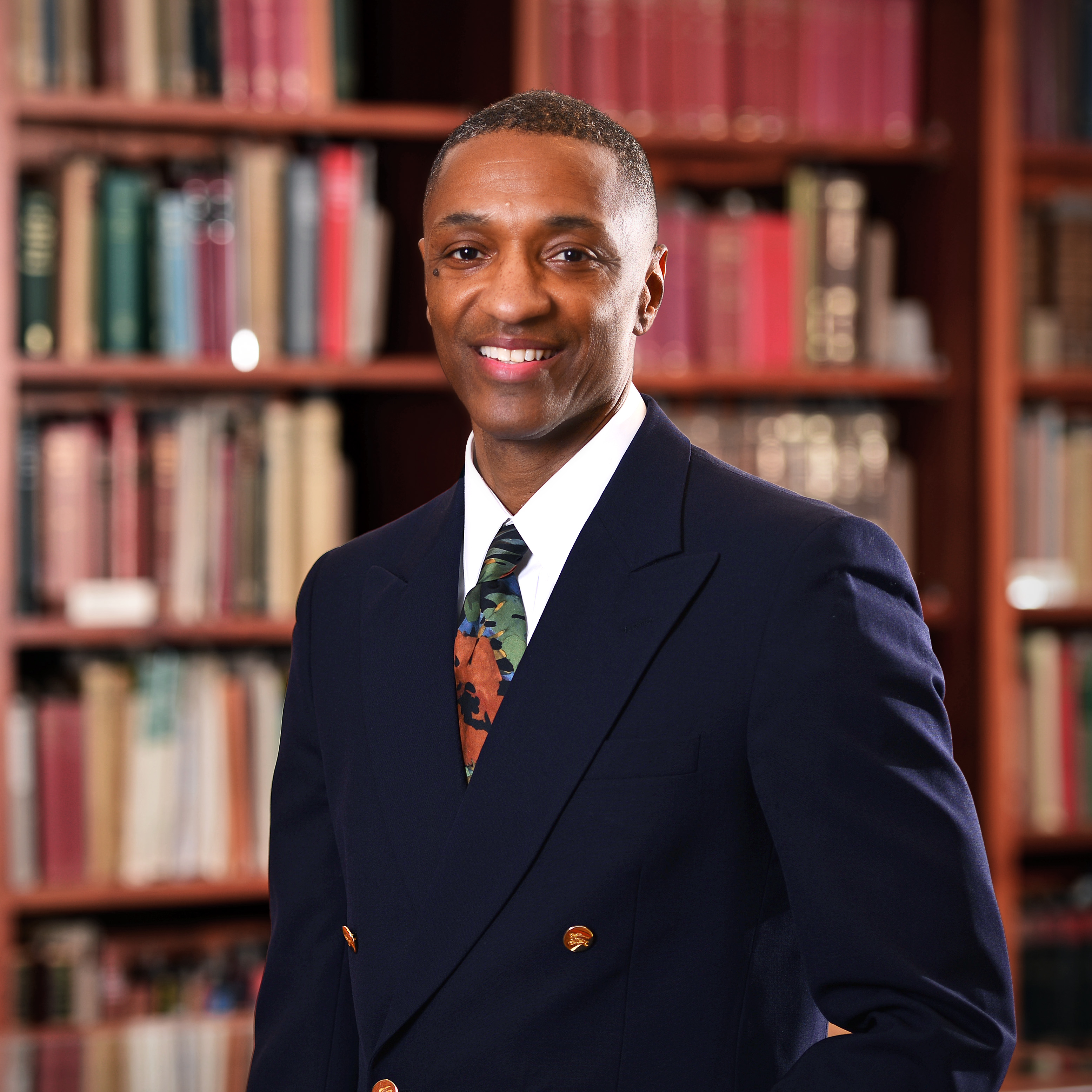
A researcher with the ability and training to see and to understand problems from multiple vantage points adds value to the academy, to the private sector, and to the non-profit world. Many of the best citizen scholars possess this ability and apply it to our most challenging problems. One of my aims as a professor and dean included supporting the development of the next generation of elite citizen scholars.
What other accomplishments as dean brought you the most satisfaction, and why?
Co-conceptualizing and securing resources for a graduate and professional student residential housing complex dedicated to the arts, design, creativity, and social entrepreneurship represents a seminal accomplishment by a team of WashU partners. The Lewis Center project is a live and learn space that responds to graduate students’ request for co-curricular and leadership development opportunities. Working with Mary Campbell and her colleagues in Quadrangle Housing was a highlight. They understood our goal to support the student experience. The team effort with Quadrangle and the support from the Trustees represented a win for the graduate education community. In light of the pandemic, I am thankful our efforts to partner with BJC HealthCare and Goldfarb School of Nursing at Barnes-Jewish College to establish a joint PhD with WashU in nursing were finalized this past month. I look forward to seeing how the students in this program contribute to the advancement of human health in the years to come.
Before becoming dean, you chaired the Department of Education for many years and taught within American Culture Studies, African and African-American Studies, Urban Studies, and other areas. Do you have a favorite memory from that time in your career?
Listening to Congressman John Lewis during the 2016 commencement represented one of my best moments. Looking out at our graduates and hearing his words opened up an intergenerational space in my mind. I imagined all of the future contributions of our undergraduate, graduate, and professional students, while traveling with him back in time. I felt the sacrifice and pain expressed; yet our students offered great hope. I experienced this kind of historical arc during Professor Wayne Field’s address during the 2019 Hooding and Recognition Ceremony. He reminded us of the history and purpose of the university. He stated, “But the idea of a university requires all of us together, demands we do our work in each other’s presence, insists our disciplines are connected even when it is difficult or unpleasant for those of us practicing them to see how.” His remarks capture the pure delight I have experienced working with WashU students and postdoctoral fellows from STEM disciplines, humanities, social sciences, and professional schools.
"Listening to Congressman John Lewis during the 2016 Commencement represented one of my best moments. Looking out at our graduates and hearing his words opened up an intergenerational space in my mind."
Much of your research has focused on inequities in health and educational access, especially in urban areas. What are some of the questions and methods that drove this work?
I situate my research in traditions associated with community psychology and sociology. Specifically, I seek to look beyond the individual to better understand how social, cultural, economic, and political factors configure in geospatially-arranged fashion. And I want to understand how these spatial arrangements modify education, health, and human development. I am driven by questions that seek to determine if nearby relationships are more similar than the same relationships that are more geographically distant. Over the past 18 years, I focused a great deal of research on St. Louis and the state of Missouri. My research questions required geospatial analytics and epidemiological approaches.
As a WashU alumnus, parent, and member of the faculty since 2002, how do you define Washington University?
My definition is personal. I define Washington University as my home. For me, this will always be home. I taught my two children to ride their bikes in the old parking lot between Brookings Hall and Skinker. A decade later, we returned to the same space to have their first driving lessons. When my daughter expressed an interest in sports, we became regulars at the women’s basketball and volleyball games. She and I drove up to Bloomington, Illinois, to watch our women’s team win a national championship. The student-athletes on that team provided a framework to discuss their academic excellence, while investing in something bigger than themselves. Both of my children attend Washington University and matriculate in Arts & Sciences departments. Hearing their perspective on my faculty colleagues as teachers affirms my belief that we offer an incredible education. Moreover, I am very thankful for the investment of time and intellect that my colleagues offer to students. Their investments hit home for me.
"I define Washington University as my home. For me, this will always be home. I taught my two children to ride their bikes in the old parking lot between Brookings Hall and Skinker. "
While on a sabbatical, I started the postdoctoral program in psychiatric epidemiology at the Washington University School of Medicine. Later I completed the program. The lessons in prevention science shaped my scholarship. In fact, I applied this training in my work with Jason Purnell on the For the Sake of All Project (now Health Equity). Working with Jason, Bettina Drake, Darrell Hudson, Melody Goodman, Keon Gilbert, and Keith Elder offered a unique opportunity to engage with brilliant junior and mid-career faculty members. And our focus on St. Louis increased my appreciation for the city and my neighbors. It remains a defining moment as the project focused on home.
What has it been like to lead the Graduate School through this COVID-19 crisis? What guiding principles have you kept in mind?
The virus represents a disruptive and deadly force. We are very fortunate. Dean Barbara Schaal is a talented and caring leader. Working with her and the rest of the Arts & Sciences leadership team enabled us to work hard to stabilize the school during this very challenging period. I looked to our university motto as a guiding principle, “Strength through Truth.” Specifically, the phrase frames my guiding questions. What does the evidence tell us about keeping our students safe? In light of the evidence and our response to ensure safety, how do we maintain our truth-seeking mission as a research enterprise and a stage for the preparation of researchers and citizen scholars?
What’s one lesson you’ve learned as a leader at WashU that you will take with you in your next chapter?
I have been fortunate to work with many amazing leaders at Washington University — Mark Wrighton, Holden Thorp, Barbara Schaal, Ed Macias, James McLeod, Lori White, Monica Allen, Hank Webber, and so many others. I remember these leaders for their special attributes. Yet, all of them focused on thinking about more than individual aims and the assignment at hand but rather sacrificing their own interests in order to offer our students the best opportunities to flourish and to develop. It is always about the students!
I look forward to coming back home as an alumnus and WashU parent to support Chancellor Andrew Martin and all of my colleagues as they sojourn to new heights.
